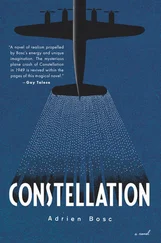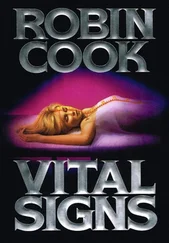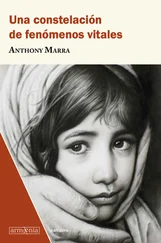“Did I ever tell you the story of the cobbler’s drunken son?” he softly asked. Ramzan heard nothing. “When I was a child, our village was plagued by a cobbler’s son, an eighteen-year-old who inflicted more property damage than could be expected from a man who couldn’t make his two feet move in the same direction. The cobbler was respected throughout the village until his son discovered the effects of fermented beet samogon . The liquor made pariahs of them both, proving right the aphorist who first stated that as the son inherits from the father, so the father inherits from the son. For years the cobbler appealed to the imam, apologized to the fathers of the women his son dishonored, and paid for, replaced, or returned the stolen goods. He offered to mend the shoes of any soul his son had wronged. So it was. But there came a point when the son’s capacity for ruin outpaced the cobbler’s capacity for restitution. He was in debt. Half the village walked on shoes paid for by his son’s drinking. One day the son vanished. No mention of him, no funeral, no gossip of work on a distant collective farm; he just disappeared. A month later my grandfather visited the cobbler with the village elders. They took him honey and raisins and welcomed him back. I, still a boy, was told to honor and respect the cobbler, as all the villagers were, because he had put the good of our small society, our teip , above his own. His son’s name became a blasphemous word, erased from the collective memory, stricken from even the whispers of women. The story, when told, always ended at this pinnacle of honor and sacrifice. It never went on to tell how the cobbler, who didn’t mend another boot in his life, lived to the age of ninety-nine as a hermit, drinking himself senseless every day and night, alone but for the ghost of his son, whom he pleaded with in unbearable calls that I could hear from the far side of the village.
“They never tell you about that part, about how long you might live with it,” Khassan continued. He held Ramzan’s limp fingers. Thirty-two and three-quarter years had passed since he had first felt those fingers and they had astonished him, delicate as sparrow feet and holding on to his thumb as if he were the sturdiest branch in the forest. “They never tell you about that part.”
For two long years he had hated himself for imagining this moment. Disappearance by disappearance he had tallied the lives his son had extinguished — and if Ramzan hadn’t snuffed them, he’d held them to the wind — Alman, Musa, Omar, Aslan, Apti, Mansur, Aslan the Hirsute, Ruslan, Amir, Amir Number Two, Isa, Khalid, and Dokka, postponing this inevitability until the next day, the next disappearance, until he watched Akhmed’s beaten shadow eclipse the flood of headlights, and knew the next day would be the last. Twenty-one years and five months earlier, Ramzan had bounded from this bed and out that door to the kitchen, shirtless and wide-eyed with awe; he had pointed to a single hair sprouting from his underarm, as thrilled as if he’d found a diamond there. “You were right about the trumpet blast,” Khassan said. The regret was already there, a blank wall he’d spend the rest of his life staring at. “These are the end times. There can be nothing after this.” Now that it had arrived, all his talk of mountaintop sacrifices seemed the absurd, grandiose fantasies of a confused old man. There was no voice in the sky.
Ramzan’s chest rose and fell, oblivious to the decision already made by the hand holding his. Khassan had held that chest when it was no wider than a chicken’s, had held it to his own and felt something so tender and precious pass between them that he would have done anything for this boy. But this? Had the bottle of sleeping pills not sat open on the nightstand, he would have acted sooner. But from the many times he had perched on the mattress, he knew the pills would keep Ramzan comatose until evening. He could wait. Now that he had, in his heart, stepped over the edge, it didn’t matter how long he fell before hitting the ground. “I want to tell you something,” he said. “But I don’t know what. I don’t know.” Pride wouldn’t allow apology, not even now. “You are my son. You are mine,” he whispered, as a spell, as a gift, a last lullaby, a branding. Ramzan’s head turned, so slightly, into the pillow, and it nearly broke Khassan to see this shimmer of life. Sleep, just a while longer, that’s it, where else can you go where you neither suffer nor cause suffering? Khassan lay on the bed and breathed with his son. He followed Ramzan’s lead. Together they drew from and gave to the communal air, his open hand on Ramzan’s chest, rising and falling in this silence they made.
Three knocks broke it. Khassan sat up and carried the cavern in his chest to the front door. No one in the village, not even Akhmed, had visited the house since Ramzan’s collusion became known. Were his former friends standing on the other side with honey and raisins to welcome him back into society? You are too soon, he wanted to cry. I haven’t done it yet. I’m still climbing to the summit. He blotted his forehead with a purple handkerchief before opening the door.
On the other side stood a woman foregrounded against the teal sky. She wore a padded gray coat over scrubs. “I’m sorry to bother you. I’m Akhmed’s … I’m his friend. Are you K?” She passed him the manila envelope he had given Akhmed two days earlier. His pulse quivered as he accepted it; if it still contained his letter to Havaa he would give up. But his address was written on the manila envelope by Akhmed’s hand. The contained correspondence was thinner than his. “In his house,” she said in explanation. “I found it there. He was taken last night.”
That shadow floundering through light to the dark bank on the other side. The dementia that was to consume his memory in nine years would leave him that. When all else had faded, those headlights would still shine; they would be the light at the end. He could hardly speak, think, act, breathe. What was happening? What was this? He discovered Ula’s name between his lips. The woman dropped her eyes and shook her head, respectful but firm, perhaps accustomed to delivering bad news. As soon as she turned to the road, he tore open the manila envelope. It held two letters. One was written by an FSB colonel, the other by a rebel field commander. Each letter gave orders for the unhindered passage of its unnamed bearer. A third message lay at the bottom of the manila envelope, written on a scrap of paper so slight he nearly missed it. Mercy , the note read. Mercy .
The dogs, dozing beside the house, stretched their legs on the ground and lumbered after him, Sharik last, as he hurried to Akhmed’s house. He held the manila envelope against his chest, blocking it from the wind.
The front door was propped against the doorframe. He passed over a clean living room floor, an inexplicably alphabetized bookcase, and the dogs followed, Sharik last, because the front door wouldn’t close, and what did it matter, they were cleaner than the last beasts to enter.
Ula lay fully clothed on the unmade bed. After the past hour watching the rise and fall of his son’s chest, he knew immediately that she was gone. White tennis shoes jutted from the end of her baggy brown skirt, as if in death she would be reborn in good health, given a newly wired nervous system, allowed in her private paradise an afterlife of marathons. He closed the bedroom door, afraid the dogs might nibble at the body. Claw patter trembled through the thin walls. If he had to come back, he would be a dog.
For a moment he stood by the door, surprised by the scent of soap. Then one foot forward. Then the other. He folded her hands together and placed them on her stomach. The room was clean, as was the body, and though he could explain neither, he wasn’t surprised. A burgundy headscarf framed her face. Cupping her skull like a fragile bowl into which he had poured his most valuable possessions, placing his thumbs on her lids, he opened her to the dead afternoon light. She stared straight through him, to the unfolding infinities that bookended her thirty-five years, through him to the place where they would soon meet, when the trumpeter’s breath failed, when he would descend the notes of the final melody to the silence where Mirza waited.
Читать дальше











